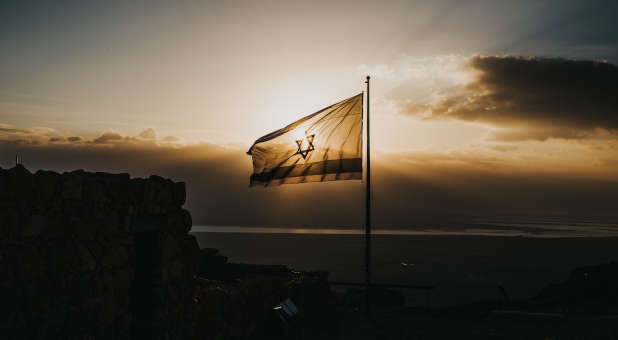Holocaust Remembrance Day: A Time for Silence, a Time for Speaking Up
Prior to coming to Israel, I hadn’t experienced anything like it before.
At 10:00 a.m. on Yom HaShoah—Israel’s Holocaust Remembrance Day—sirens sounded across the country, signaling that it was time to observe a minute of silence for our six million brothers and sisters, the victims of the Holocaust.
Everything stopped. Cars came to a halt in the middle of the highway. Work stopped in workplaces. Shoppers paused in malls and grocery stores. Children stood in their classrooms. Everyone bowed their heads in respect and introspection. It was eerily silent.
This moment, which takes place each year, has great power. It unites Israelis in a deep way, both with Holocaust victims and with each other. It’s as if we are all mourning lost family members together—and, of course, many of us are. Yom HaShoah is a very intense time for the people of Israel; it isn’t just another holiday that commemorates a historical event. For the Jewish people, this is personal. This is our story, the story etched on every Jewish person’s soul.
Even as Yom HaShoah calls us to silence, it actually calls us to speak out as well. “Never again,” the motto the Jewish people adopted after the horrors of the Holocaust, means speaking out against injustice, bigotry and blind hatred directed against people because of their faith or race. We must pass this duty to the next generation by teaching them the history of the Jewish people—their tragedies as well as their triumphs.
We do this best by telling the stories of those who lived through this horrific era. I grew up hearing those stories. When I was a child and my grandfather was at our house, he would tell us how he jumped from a moving train that was on the way to the concentration camps and how God saved him through miracles. Then his car broke down as he and his family were escaping the Nazis, and the family was split up as they fled on foot. Various family members couldn’t find each other for months and feared the others were dead. Miraculously, my grandfather survived and escaped Nazi Germany. Many of his family members did not.
For most people, it’s difficult to make these stories feel real. And that is why several years ago I took my oldest daughter on a very special trip at the time of her bat mitzvah. I had been to Ukraine many times in order to deliver Fellowship aid to Holocaust survivors and orphans. But this trip was different. I took my precious Israeli daughter to Ukraine to help her discover her roots and show her what some Jewish people have gone through simply because of their faith—to help her appreciate living in Israel and recognize the huge cost our people have paid for being foreigners in foreign lands.
Our first stop was Babi Yar, on the outskirts of the Ukrainian capital, Kiev. Here, during one terrible week in September 1941, the Nazis murdered at least 33,000 Jews (though some historians estimate they killed far more) after capturing the city. The scale of the Babi Yar massacre is difficult to comprehend. So we focused on just one story, the story of a Jewish girl who stood exactly where we were standing and was shot to death before being buried with tens of thousands of her fellow Jews. We held a picture of her; we cried, and we prayed.
It was an overwhelming and emotional experience. While there was much sorrow in contemplating the senseless brutality and loss of life, it was also a reminder of how blessed we are to live in Israel. Ours is a deeply rich faith, and our people—and our nation, Israel—have contributed so much to the world. As we talked later about the experience, I said to my daughter, “It’s not easy being born a Jew, but it is also our greatest gift.”
After the monumental and unexpected challenges of last year, one thing is clear to me: Seasons come and go, sometimes in ways we never could have imagined. But our commitment to remembering the Holocaust must always remain the same. I am so grateful that no matter how the world changes or how much time passes, my children and grandchildren will live in a country that will always sound the siren and stand in silent solidarity on Yom HaShoah. And I am equally glad they live in a country that will teach them that speaking out is essential.
We must know when to be silent and when to speak out, and we must remember the past in order to forge a better future. {eoa}
Yael Eckstein is the president and CEO of the International Fellowship of Christians and Jews. In this role, she also holds the rare distinction of being a woman leading one of the world’s largest, religious not-for-profit organizations, having raised $1.8 billion—mostly from Christians—to assist Israel and the Jewish people. She is the author of the book Generation to Generation: Passing on a Legacy of Faith to our Children.
















































